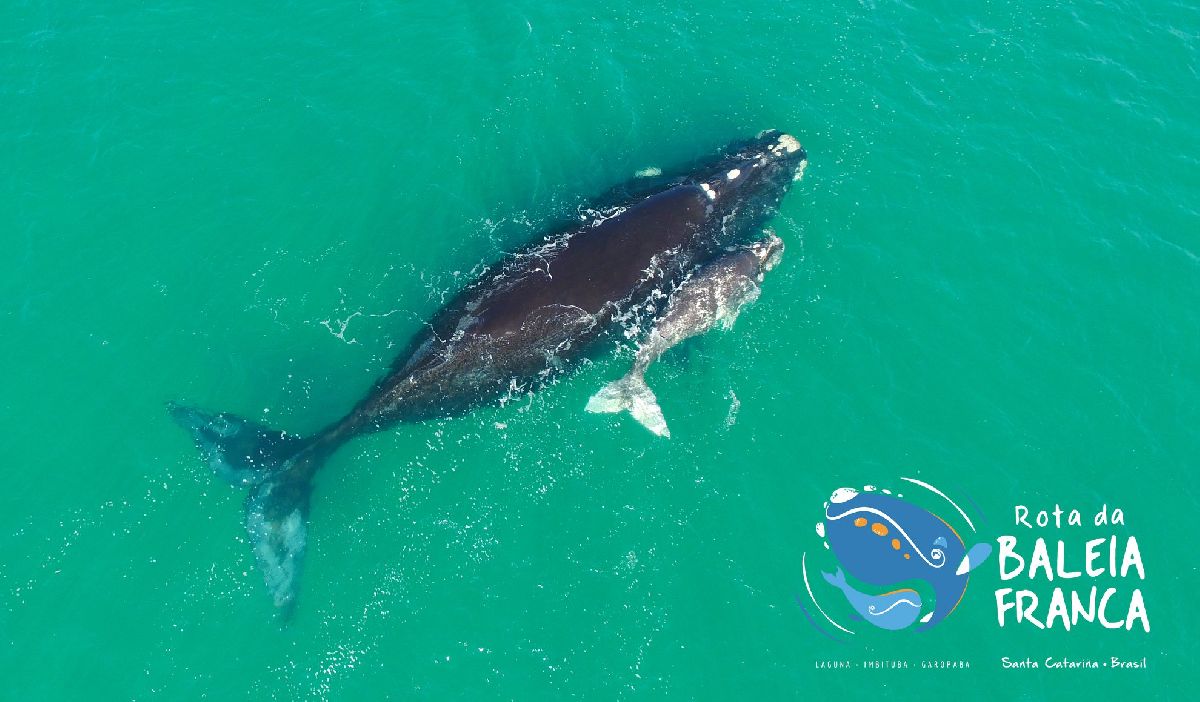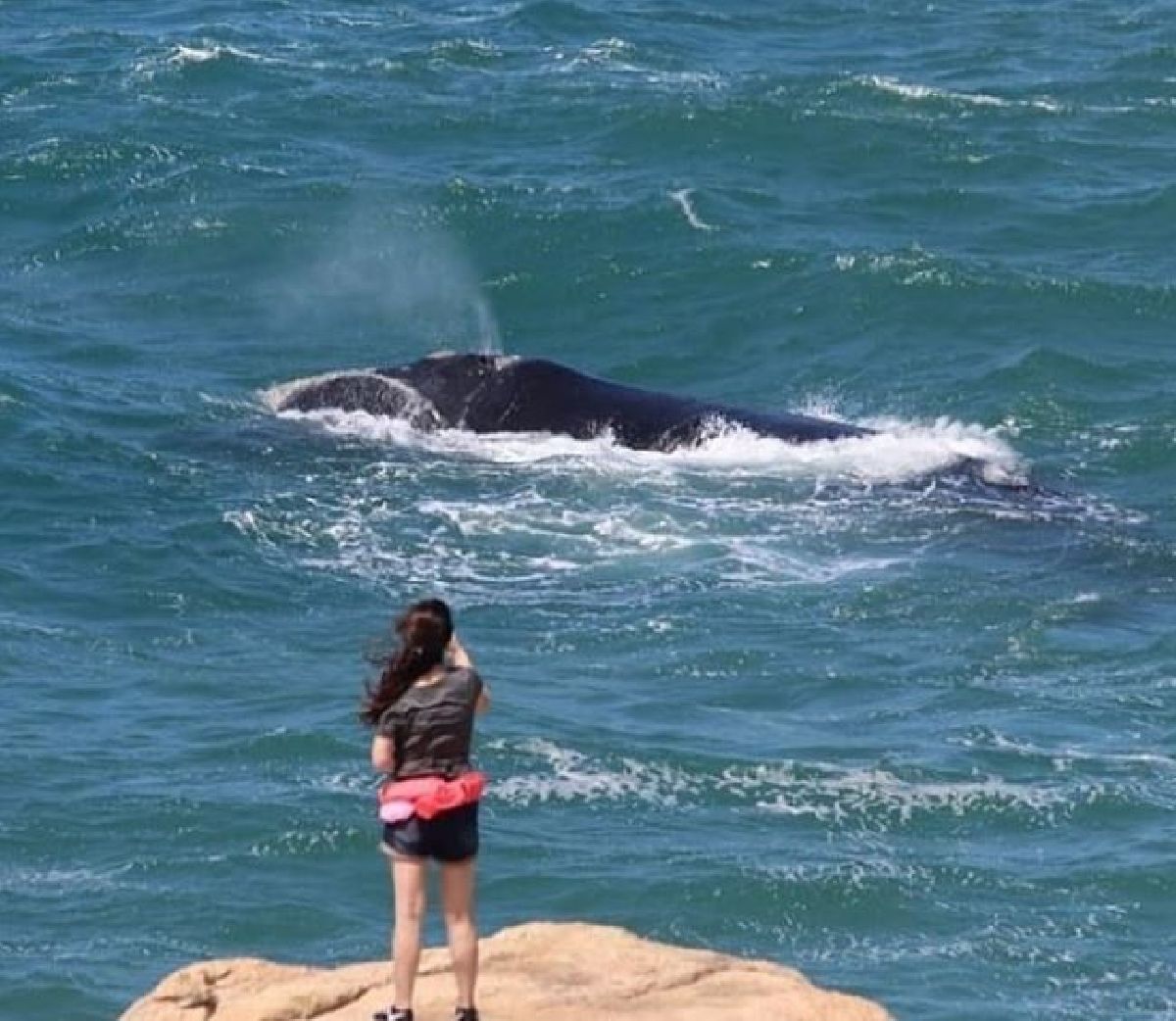Southern Right Whale Observation
Between June and November - Imbituba, Santa Catarina, Brazil

Many people do not know that Brazil is one of the best places to observe the greatest of all mammals, whales. The animals arrive at the Brazilian coast to reproduce or to escape from the icy waters of Antarctica during the winter. Imbituba is 90 km from the capital Florianópolis and it is one of the best places to observe cetaceans in the Southern region of Brazil. The best time for this activity is between June and November.
Learn more on Rota da Baleia FrancaA bit of History
There was a time when Right Whales occupied almost the entire length of the Brazilian coast, from Bahia to Santa Catarina. But evidence shows that, since colonial Brazil, they were hunted. Their fat was used to produce oil for lighting and the fins they have in their mouths, replacing their teeth, were used to make corsets. The last Right Whale was hunted in Santa Catarina in 1973, but the law that prohibits hunting was only enacted in 1989. Currently, more than 100 whales arrive in Brazil per season. In a record over the past 31 years, the Australis Institute recorded, in 2018, the presence of 284 whales. If you are curious about this whole story, check out the Australis Institute website.

What can we see?
Usually pairs of mother and calves are spotted, swimming very close to the shore, since the species is coastal in its reproductive period! We can often visualize different behaviors, such as the mother exposing the enormous pectoral fin when she turns her belly upwards, or her tail when it is a little further away from the surf zone and takes deep dives. It is also possible to see the impressive jumps out of the water, performed more often by the calves, but adult whales can also jump - and all of this very close to the beach and the cliffs!

Everything about Right Whale
The Imbituba Whale Museum, located on Porto beach and housed in the historic building called “Barracão Manoel Rosa” in honor of one of the last whalers in Imbituba and active promoter of public education on the history of hunting and the conservation of Right Whales, it was inaugurated in September 2003 and is the result of a partnership between the Baleia Franca Project, the Municipality of Imbituba and many businessmen from the region who joined PETROBRAS to enable the historical reconstruction of the building and the installation of the exhibitions. It has space for visitation, a whale viewing deck, a research laboratory and a library. Everything to inform the public and help to preserve the species, which is in danger of extinction.
